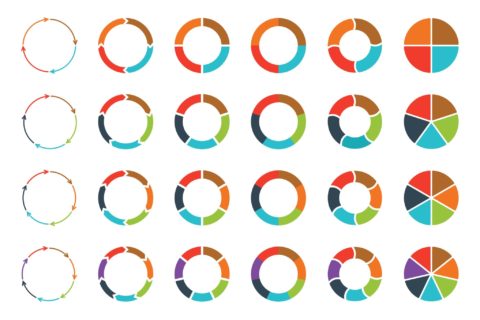By Finn Raben, David Smith and Ijaz Gilani
Political opinion polling has recently come in for some very heavy criticism, in different countries around the world; and yet this criticism continues to often be one-dimensional, and based on over-inflated expectations, without any appreciation of the myriad complexities that make up the influencers on people’s opinions and attitudes in this modern era of communication.
Indeed, this debate has been held on many an occasion in the past, and yet – perhaps as a result of the increased opinion and commentary “noise” referred to later in this piece, the key points that have been – and continue to be – actively debated, are often ignored or forgotten, as the latest inquisition gathers momentum. Let us therefore, just remind ourselves of some of the complexities:
“Political opinion” – by its very definition – is a changeable thing, and is dependent on the political body expressing it, the reason for expressing it, and of course the potential (political) benefit that will accrue from its expression!
No longer are such expressions of opinion limited to one news broadcast, or indeed two print publications per day….quite the contrary. There are now a plethora of communication vehicles, social media and other publications that can carry an opinion – and indeed, anyone’s opinion – at any time of day.
This ‘opinion culture’ , coupled with broadcasters‘ need to constantly report “new news”, can often lead to the dissemination of uncorroborated or in the worst case, misinformed opinion, all of which can impact on the public, and the electorate’s perception of events.
A case in point could be the recent tragic events in Paris; within a couple of hours, most of the 24 hour news channels were reporting that the French borders were closed; in fact, all ports of entry remained open throughout the events of the weekend.
In the knowledge therefore, that the information environment is not always fully transparent, let us then try to place the demand of political opinion polling in context: despite the vastly increased “noise” of commentary, the myriad sources of “opinion”, often unfiltered (and uncorroborated!), there remains a consistent demand that any one poll, at any one point in time, should be absolutely accurate with regard to the final outcome of the election….. Really?
Had we polled the French public on that tragic weekend with regard to their perceptions of the status of their national borders, would the result have been “accurate” ?
One of the frustrations for market researchers about the high expectations everyone has of point in time polling is that it clouds the perceptions of how market researchers work on more straightforward commercial studies. Researchers usually draw on a very wide range of commentaries and data points in order to build up a more ‘contextualised’ picture of what is happening.
Thus, with the recent British elections, if seen as a brand assessment exercise, researchers would have assembled all the evidence we have about the main protagonists and work out who were likely to be the winners and losers. Working in this more holistic and eclectic way, there is a strong argument to suggest that the overall result of the British election would have been more clearly predicted.
In this environment, the gap between expectations and outcomes may generally be found to have been caused in one of three main groups: Pollsters; Media Pundits and Politicians.
Firstly, pollsters need to deal with:
- the date of polling, for each survey conducted…..to understand the potential impact from other media “noise”, and to place whatever events were topical, in context. After all, a pre-election poll is not a “forecast” until after the election!
- the size and structure of sample……each of these can have a bearing on the results, and in any publication of findings, a clear understanding of these nuances is critical to understanding the results
- the handling of special issues pertinent to pre-election polls such as:
- Intention to vote, (by Region, compared with actual turnout;
- Uncertain voters who claimed they had not made up their mind;
- Voters who had switched voting loyalties.
An additional point – which although not espoused in developed electoral environments, does still appear to have some traction in less developed systems – is that of voters being constrained by ‘social pressure’ to reveal their preference, or to even fully articulate it until the actual moment of voting.
All of these elements can have an impact upon public perception and conscience, thus influencing any one person’s response. As the recently published update of the ESOMAR/WAPOR Guideline on Opinion Polls and Published Surveys stresses, full methodological disclosure is more and more important because as opinion polls have grown in number, complexity and variety, decision-makers, journalists and the public need to be able to differentiate between professional and unprofessional polls, and to know when to use them as appropriate information when evaluating public attitudes.
The British Election study – conducted in the wake of the criticism surrounding the poll results of the 2015 General Election – is one of the more definitive reference points on polling performance, and essentially concludes that in-home sample is better than online sample, and that too little money is spent on polling to ensure consistent and accurate results.
(The British Election results may be found here: http://www.britishelectionstudy.com/bes-resources/why-the-polls-got-it-wrong-and-the-british-election-study-face-to-face-survey-got-it-almost-right/#.VmBEsKSIQiR)
Then, Media Pundits need to do some deeper soul searching about developing some consistent ‘rules’ on how to write about measures of popular mood(s). The excessive blending of their personal views (desirability) on good government, with their analysis of (inadequately described) electoral behavior, can often lead to misinterpretation, and indeed, propaganda. A further layer of complication is then added, when we consider that there is a rising social gap between many pundits and a proportion of the electorate, reinforced by the ‘ghettoising’ effect of social media, now that so many social media channels are also available.
Lastly, the “gap” that can be found in Political interpretation is probably one of the most interesting…The complicated relationship between ‘votes’ and ‘seats’ has always represented a challenge in terms of predictability. The complication lies primarily in the interest of creating a balance between ‘the need to seek consensus’ and the need to enforce a ‘majoritarian decision’. Herein lies the fine act of achieving democratic pluralism. Democracy is, on the whole, a beautiful act of achieving balances, and although very hard to predict, the wisdom of the (electorate) crowd would appear (in most cases) to respect that.
However, this is not always the case, and it is on those occasions when crowd wisdom runs counter to expectations, that we should NOT rush to ‘shoot the messenger’, but rather, we should take a moment to recognize the many influences of…the exponentially increasing “volume” of media commentary; the exponentially increasing complexity of the environment in which we conduct polls, and the often unreasonably high expectations we place on ‘point-in-time’ predictions.
Market Research plays an incredibly important (and proven!) role in society, and has contributed immeasurably in areas such as….
– determining views towards democracy and the rule of law, in combat zones;
– providing unique measures of the spread (or containment) of virulent diseases
– providing behavioural change measures to determine the effectiveness of programs to reduce drink-driving, to provide suicide counseling, and to prevent radicalization – all of which have benefited society.
2016 will undoubtedly see evidence from the UK that polls conducted with proper samples and in less of a rush to meet media deadlines, will give a more accurate measure of public opinion. We may also need to accept that deploying online samples (for cost reasons) to research topics for which this sampling approach is less suited, is not always “fit-for-purpose”. And lastly, when a poll is deemed to be “inaccurate”, then let us firstly examine the demands we made of the poll, before simply assuming that it was the poll that was wrong.
Contributors:
David Smith, ESOMAR Vice President & Founder, DVL Smith Ltd
Dr Ijaz Gilani, Chairman, Gilani Research Foundation and Vice President WIN-Gallup International
Finn Raben, ESOMAR Director General


